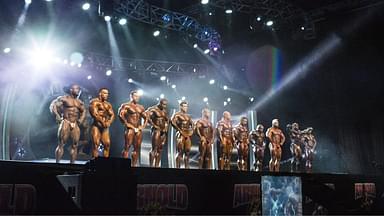There has been an age-old debate trying to categorize bodybuilding into the field of art versus sport. Extremely physical in nature, bodybuilding has historically been linked to both a presentation of one’s strength and flaunting aesthetic physiques. Therefore, to understand if one could label the activity as a sport or not, it is crucial to know what a sport is.
Definition of a sport
According to the Cambridge Dictionary, a sport can be a game, a competition, or an activity of similar nature. The prerequisites to keep in mind are that the activity must demand physical efforts and skills followed by a set of rules that one must follow. Ultimately, any kind of sport must provide recreational benefits for those who indulge in it.
What about Bodybuilding?
Bodybuilding is an activity that involves chiseling down one’s physique through a series of workout and nutrition plans such that individuals build bigger muscles. It demands extreme levels of physical resistance and efforts to grow stronger and larger.
Bodybuilding competitions, especially the ones organized by the official IFBB community, comprise of strict rules and regulations that the participants must adhere to. When one takes into account all of these factors, it confirms many similarities with the definition of a sport.
Caveats to bodybuilding as a sport
The road to becoming a bodybuilding champion involves several strenuous days of exercising and preparing for the goal. However, many argue about the other side of the activity that focuses more on aesthetics than anything else.
Bodybuilding competitions have grown to develop their own set of rules that judge one’s physical features, scrutinize musculature, and mark points based on several other criteria. The issue with that is that, unlike legitimate sports where points are provided on technique or adherence to rules, the marking system in bodybuilding is subjective.
A good sense of aesthetics varies from person to person where each individual will have their own preferences, potentially clouding one’s judgement. A certain set of physical features may both be looked up to or looked down upon depending on the competition judge, which makes the criteria slightly vague.
Looking at PEDs in bodybuilding
Any traditional sport, especially the ones that appear at the Olympics, frowns upon the use of Performance-enhancing Drugs. It creates an environment of unfairness and inequality, therefore authorities not allowing its use.
Bodybuilding, however, lies in murky waters in this arena, even with a well-known ban on certain substances. The IFBB and the World Anti-Doping Agency (WADA) prohibit a bunch of PEDs, including anabolic agents, hormone modulators, diuretics, and so on. However, there have been several instances where bodybuilders have bypassed the hurdle. This is because the testing that generally takes place at competitions may have outdated methods or improper techniques that ultimately lead to compromised situations.
Conclusion
Bodybuilding has its own sets of quirks and uniqueness as a physical activity involving competitions. Many respect it for the significance it has carried in the world of aesthetics and strength.
While it colloquially requires immense amounts of preparation and planning, the question of whether it is counted as a sport or not is still up for debate. The stance could be extremely subjective since one might choose to look at its principles versus its manifestation in competitions. Either way, the activity has enraptured several fitness enthusiasts for the grandeur, and it never fails to provide entertainment.




